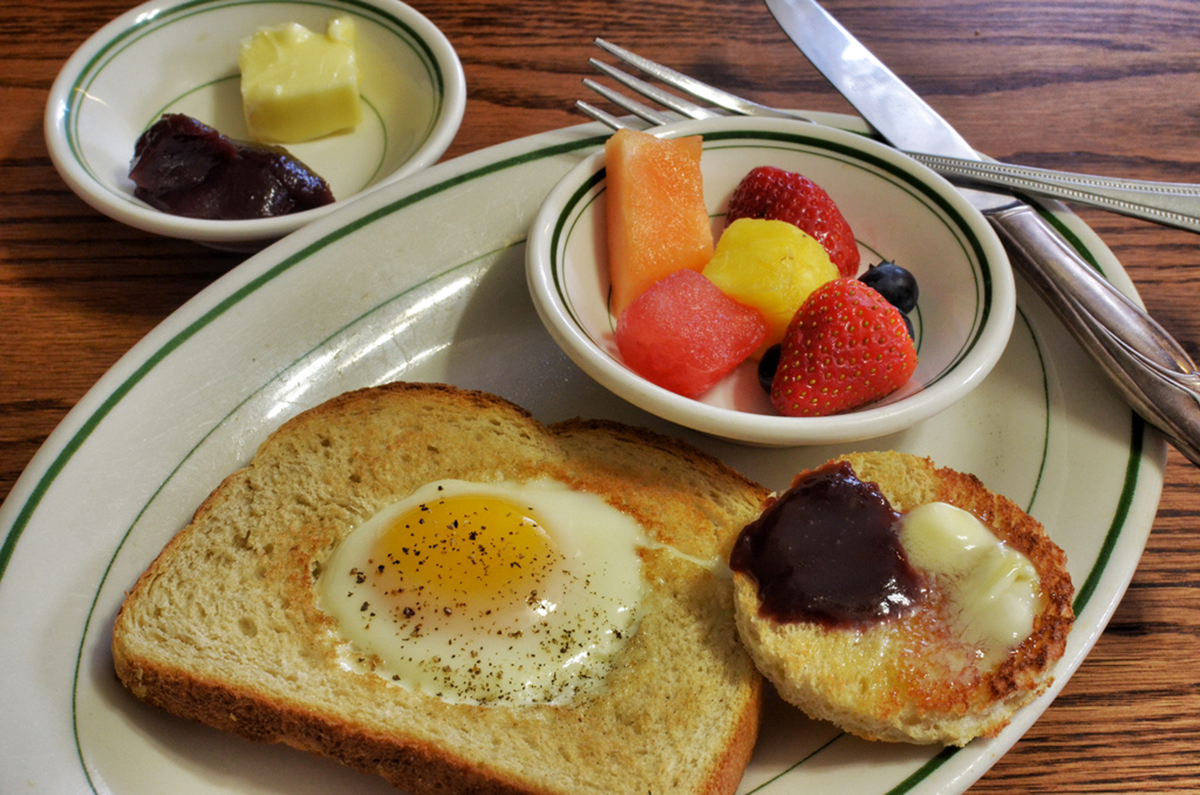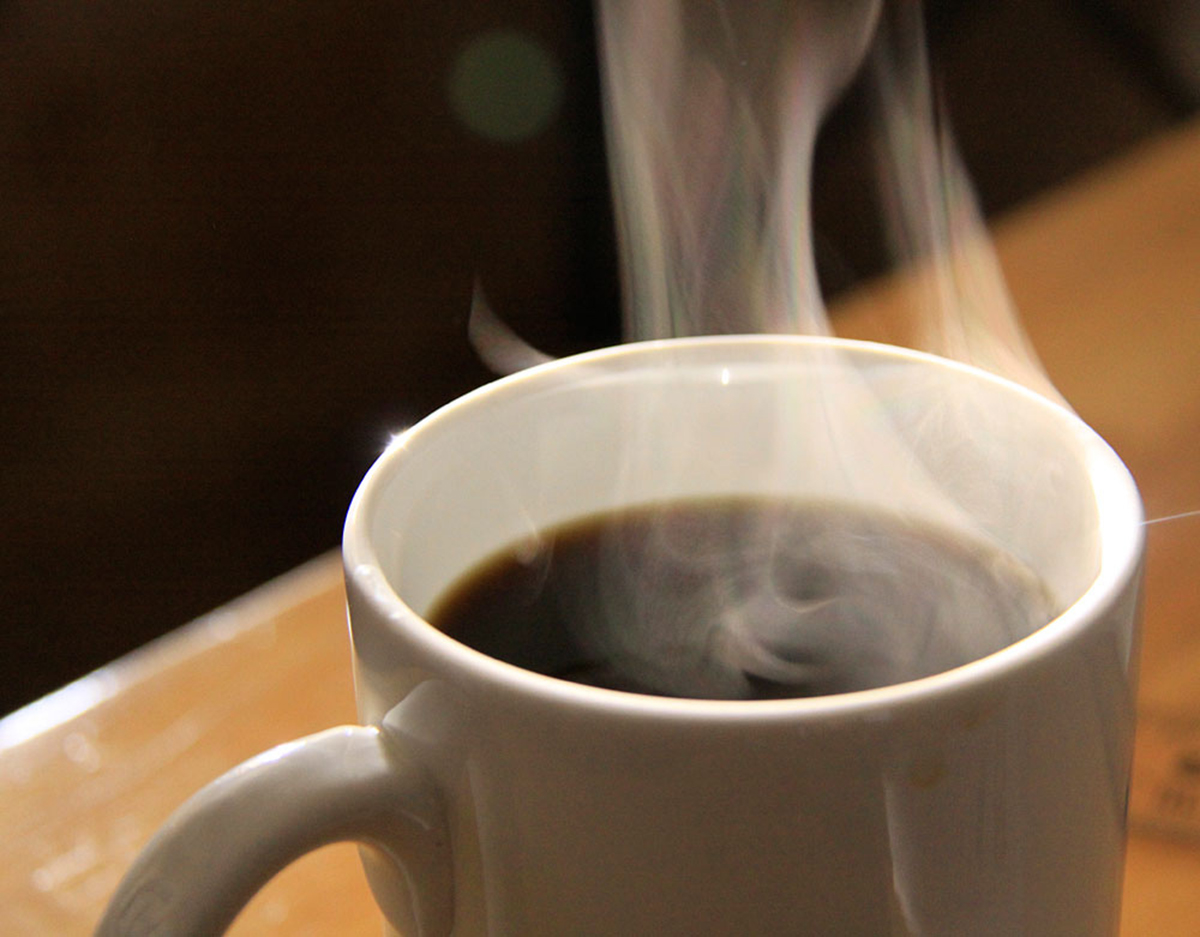Is breakfast overrated? For years we have heard that eating breakfast every day is essential to a healthy diet. Studies find that obese teens, obese women over 60, and depressed diabetics have one thing in common: They don't eat breakfast. Scientists in Japan seeking to solve the puzzling finding that Japanese people are eating less but weighing more place blame on not eating a healthy breakfast. The evidence that breakfast truly is the most important meal of the day, however, is meager, and two recent studies suggest that the importance of breakfast in a healthy lifestyle has been greatly exaggerated.

PEBO, The Power Of Eating Breakfast, Questioned
The habit of eating breakfast has some passionate defenders in the world of nutrition. So many authorities are so insistent that breakfast is the most important meal of the day that there is even a commonly used acronym, PEBO, for the power of eating breakfast. (In academic papers, this acronym refers to the "proposed effect of eating breakfast on obesity".) For many traditionalists, particularly in the US and UK, where "healthy breakfasts" are the norm, PEBO rules.
In one study, nutritionist Dr Emily Dhurandhar and her colleagues at institutions all over the United States at recruited 309 male and female volunteers, all of the overweight or obese, aged 20 to 65 to agree either to eat breakfast, or not eat breakfast, for 16 weeks. Some people who agreed to eat breakfast every day for the 16-week trial were already regular breakfast eaters, and some were not. Some people who agreed not to eat breakfast for the 16-week trial already regularly skipped breakfast, and some were already in the habit of not eating breakfast. This divided the study volunteers into four groups.
Surprisingly, all four groups lost weight during the four-month study, whether they ate breakfast or not, and whether they had previously eaten breakfast or not. Two groups lost slightly more weight, the breakfast skippers who started eating breakfast, and the breakfast eaters who started skipping breakfast. The added weight loss was, on average, just 0.1 kilograms (about 1/4 of a pound). Dr Dhurandhar told a source for Atlantic Monthly that previously she had been a member of the "breakfast police," but now breakfast may just be another meal and "I guess I won't nag my husband to eat breakfast any more".
See Also: Big Breakfasts And Diabetes: Can A Big Breakfast Improve Blood Sugar Control?
Some Nutritionists Just Don't Like Eating Breakfast
Another, smaller study was conducted at the University of Bath in England, involving detailed laboratory studies and almost constant tracking of 33 volunteers who did, or did not, eat breakfast every day during the study. Lead researcher James Betts told reporters (again, from a story in The Atlantic) that:
"One thing I've learned as a health writer is that a wealth of academic research is the product of personal vendettas, some healthier than others. The crux of the breakfast divide is a phenomenon known among nutrition scientists as 'proposed effect of breakfast on obesity,' or the PEBO. It's the idea people who don't eat breakfast actually end up eating more and/or worse things over the course of the day because their nightly fast was not properly broken."
Quality, Not Quantity May Be The Key To A Healthy Breakfast
Not surprisingly, the study led by Dr Betts found that people who eat breakfast burn more calories when they exercise, but eating the meal, or not, had no effect on burning calories at rest. Neither did eating breakfast suppress appetite for the rest of the day. Breakfast eaters still wanted to eat other meals, although their blood sugar levels tended to be more stable in the afternoon.

Both of these studies, however, miss an important point. What you eat for breakfast may be as important as whether you eat breakfast or not. Here is what studies looking at breakfast foods, than breakfast as a meal, have found:
- Eating eggs for breakfast enhances weight loss. It is important to be clear: Eating eggs for breakfast in addition to all the other high-calorie foods one can find on an American or British breakfast table does not offset overeating or failure to exercise. However, if you are already dieting, then choosing eggs for your breakfast protein may make sticking to your diet easier. Studies have found that high-quality protein, like eggs, for breakfast, suppresses the release of the hormone ghrelin. This hormone makes you hungry; eggs and similar high-protein foods keep you from getting as hungry. Raising cholesterol levels is not an important concern for most people. Even if you eat two eggs a day, your body makes more than five times as much cholesterol as you get from the eggs.
- Coffee may kill your appetite. People tend to eat the same amount of food during the day, one study found, even if they skip breakfast and just drink coffee. If you are planning to visit an all-you-can-eat breakfast buffet, be sure to order coffee with your meal. Both regular and decaffeinated coffee have this effect. Remember, cream and sugar have calories, and coffee drinks (like those offered by Starbucks) can have as many calories, mostly in the form of sugar and fat, as a small meal.
- Whole grain cereals provide carbohydrate, modest amounts of protein, and fiber that is good not just for you but also for the probiotic bacteria that live in your digestive tract. There is no evidence, however, that whole grains have to be eaten at breakfast.
- Juice from red oranges reduces blood pressure and arterial inflammation. Other kinds of oranges, however, do not have this effect. It only takes drinking half a cup (120 ml) of red orange juice to get this protective benefit.
- Dairy products at breakfast reduces the need to eat morning snacks. This effect seems to be especially important in controlling childhood obesity. Most people have some degree of lactose intolerance in adulthood, and may need to consume yogurt or cheese rather than whole milk or cream. If you consume dairy, you get the same high-quality protein, and the same appetite control, provided by eggs. Consuming a high-protein breakfast every day, day after day, however, reduces its effect on hunger.
The key to a good breakfast is to eat high-quality protein. For most of us, that means eggs, meat, or dairy products, but fish, minimally processed soy products, such as tofu, and even beans and legumes are also helpful. Eating "just any" breakfast food, doughnuts and sugary cereals, for example, provides few benefits for health.
See Also: Don't Skip Breakfast And Stay Healthy
An Afterword: Doesn't Some of the Research Literature Suggest Horrible Consequences from Not Eating Breakfast?
The research literature also contains studies that find that women who suffer high anxiety levels, or high levels of the stress hormone cortisol, tend not to eat breakfast. What these studies do not demonstrate is whether skipping breakfast causes "feeling stressed out" or high stress levels cause skipping breakfast. There are also studies that find that children who skip breakfast are more likely to be victimized by bullies, but this would seem to be a spurious correlation, that is, there is little or no causative relationship between breakfast choices of one child and behavior of another.
- Betts JA, Richardson JD, Chowdhury EA, Holman GD, Tsintzas K, Thompson D. The causal role of breakfast in energy balance and health: a randomized controlled trial in lean adults. Am J Clin Nutr. 2014 Jun 4. 100(2):539-547. [Epub ahead of print] PMID: 24898233.
- Dhurandhar EJ, Dawson J, Alcorn A, Larsen LH, Thomas EA, Cardel M, Bourland AC, Astrup A, St-Onge MP, Hill JO, Apovian CM, Shikany JM, Allison DB. The effectiveness of breakfast recommendations on weight loss: a randomized controlled trial. Am J Clin Nutr. 2014 Jun 4.100(2):507-513. [Epub ahead of print]PMID: 24898236.
- Photo courtesy of Jeffreyw via Flickr: www.flickr.com/photos/jeffreyww/8337577843
- Photo courtesy of waferboard via Flickr: www.flickr.com/photos/waferboard/7417277818


Your thoughts on this